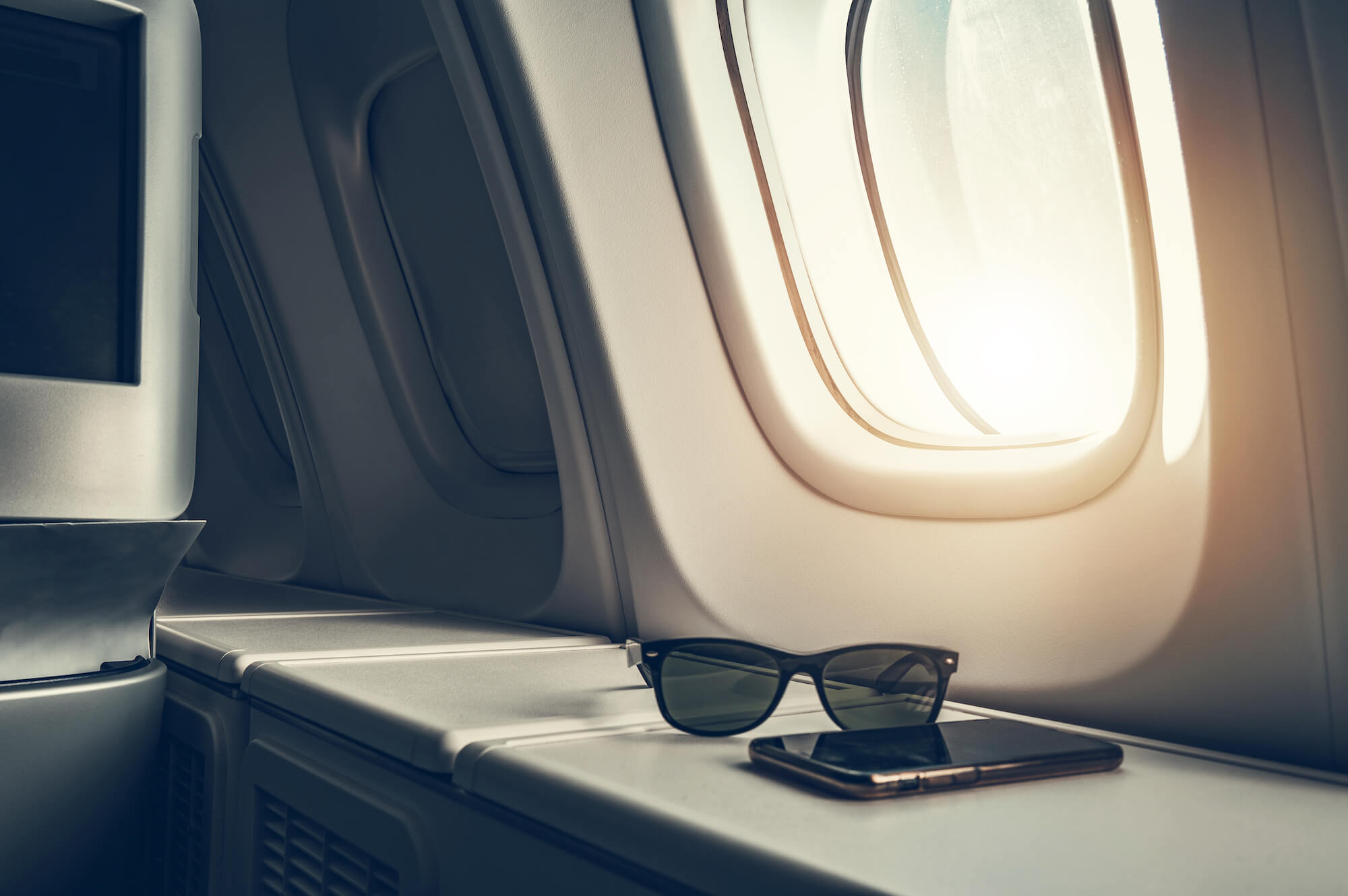How to Get Over a Jet lag with these 8 Scientifically Proven Tips

Jet lag can ruin a perfectly good vacation or trip. With symptoms like daytime sleepiness, difficulty concentrating, and digestive issues, it's no wonder people want to overcome it as quickly as possible.
Jet lag occurs when you travel across time zones, and your body's internal clocks need time to adjust to the new local time. For instance, if traveling from New York to London, the local time advances by five hours. However, your body cannot adjust quickly enough, leaving you still awake and active on New York time when it is 11 p.m. in London. Thus, it feels like only 6 p.m. to you, making it difficult to fall asleep. And in the morning, even if it is 8 a.m. locally, it might be impossible to wake up as your body thinks it's only 3 a.m. This reverses when traveling back home, abruptly going back five hours.
Here are the symptoms associated with jet lag:
- Sleep disturbances, difficulty falling asleep, staying asleep, or waking up early
- Daytime sleepiness
- Lowered alertness
- Loss of concentration
- Appetite loss and feeling hungry at unusual times
- Digestive issues
- Low mood and irritability
- Poor mental and physical performance
Jet lag is even considered a sleep disorder because it can significantly disrupt your sleep. The severity of symptoms depends on factors such as the number of time zones crossed, age, and chronotype.
Although sleep deprivation from air travel can contribute to jet lag, the primary cause is a misalignment of your circadian rhythms. Your brain has a “master clock” called the suprachiasmatic nucleus (SCN), which is tuned to the light-dark cycle and regulates functions such as energy levels, body temperature fluctuations, and hormone production.
The SCN also sends signals to peripheral clocks that regulate functions in organs like the liver, gut, and adrenal glands. While your circadian rhythms can adapt to new time zones, it's a slow process that cannot happen overnight. Therefore, when you suddenly move forward or backward in time, your body clocks take some time to catch up, and you'll experience jet lag symptoms during this adjustment period.
The good news is, there are science-backed ways to help your body adjust faster. Here are eight scientifically proven tips for getting over jet lag.
1. Adapt quickly to your new time zone
One of the best ways to get over jet lag faster is to adapt to your new time zone as quickly as possible. You can start adjusting your sleep time, wake time, and meal times by 30 to 60 minutes each day towards the time in your new destination, starting a few days before you leave. This will help you adjust to the new time zone more quickly.
When you reach your destination, try to forget your old time zone as soon as you arrive at your destination. Set your watch and other clocks to the local time, and eat meals and go to bed according to the new time zone.
If you're traveling for an important event, consider heading out a few days early to give your body time to adjust before you need to be at your best. If you can't adjust to your new schedule before your trip, at least try adjusting on the plane. Set your watch to the time in your new time zone when boarding the plane, and try to sleep and eat according to this. Ear plugs and a sleep mask can make sleeping on a plane easier.
2. Manage sleep time
Make sure you sleep when it's most appropriate to your new schedule. If your flight is in the air during your destination's nighttime, try to log some sleep while airborne. Noise-canceling headphones, white noise, eye masks, earplugs, comfortable travel pillows, and blankets can all help you rest on the plane.
Avoid the urge to nap when you arrive if it's daytime. This can make it difficult to sleep later on. If you feel sleepy during the day, go outside and get some sunlight. This will help reset your body clock and help you stay awake.
3. Drink water
Long-distance travel can cause dehydration, and you may even reduce water consumption during travel to avoid bathroom breaks. But proper hydration may help manage jet lag symptoms and travel fatigue. Carry an empty water bottle through airport security and fill it up once you're in the terminal. You can also purchase water in the terminal or request it in-flight. Continue to drink plenty of water upon your arrival.
4. Be Strategic with Your Light Exposure
Jet lag interrupts your internal clock in part because your exposure to light changes when you travel and change time zones. Getting outside in the sunshine can wake up your body and reduce the release of melatonin hormones that make you sleepy.
Exposing yourself to morning light will help if you need to wake up and function earlier when you travel east. Getting more light at night can be useful if you need to stay up later in your new time zone when you travel west.
You can also use a special lamp to expose yourself to light. The types of lights that may help include white or blue light boxes and green light glasses. Consult your doctor before using light therapy.
5. Consider Melatonin
Melatonin is a hormone that helps regulate your sleep-wake cycle. It’s naturally produced by your body, but you can also take it as a supplement.
Research suggests that taking melatonin before bedtime can help reduce the symptoms of jet lag, particularly when traveling across multiple time zones. It can help you fall asleep more easily and adjust to your new sleep schedule.
However, it’s important to talk to your doctor before taking melatonin, especially if you’re on any medications or have any underlying health conditions.
6. Avoid Alcohol and Caffeine
While it may be tempting to have a few drinks to help you relax or a cup of coffee to stay awake, both can contribute to jet lag symptoms. Alcohol can dehydrate you and disrupt your sleep patterns, while caffeine can interfere with your body’s natural sleep cycle.
Try to avoid or limit alcohol and caffeine intake for a few days before and after your flight. Instead, opt for water and herbal teas to stay hydrated and calm.
7. Exercise
Regular exercise has numerous health benefits, including helping you adapt to a new time zone. Exercise can help reset your body clock and reduce jet lag symptoms like fatigue and poor concentration.
Try to exercise in natural daylight when possible, as exposure to sunlight can help regulate your circadian rhythms. You don’t need to do a strenuous workout; even a light walk or some stretching can be beneficial.
8. Give Yourself Time
Finally, it’s important to give yourself time to adjust to your new time zone. Jet lag is a normal part of traveling, and it can take several days for your body to fully adapt.
Be patient and try not to stress too much about it. Focus on getting enough sleep, staying hydrated, and getting plenty of sunlight and exercise. Before you know it, you’ll be feeling like yourself again.
Conclusion
Jet lag is a common and often unpleasant side effect of traveling across time zones. However, there are science-backed ways you can help your body adjust more quickly and reduce the symptoms of jet lag.
By adapting quickly to your new time zone, managing your sleep, staying hydrated, being strategic with your light exposure, avoiding alcohol and caffeine, exercising, considering melatonin, and giving yourself time, you can reduce the effects of jet lag and get back to feeling your best sooner.
Of course, everyone’s experience with jet lag is different, and what works for one person may not work for another. It’s important to listen to your body and do what feels right for you.
If you’re traveling for an important event or have a history of severe jet lag, it may be worth talking to your doctor about additional strategies or medications that can help you manage your symptoms.
With a little bit of planning and self-care, you can make the most of your travels and enjoy your time in a new place without feeling weighed down by jet lag.
Sources:
Jet lag syndrome: circadian organization, pathophysiology, and management strategies. By Andrew M Vosko, Christopher S Colwell, and Alon Y Avidan
https://www.ncbi.nlm.nih.gov/pmc/articles/PMC3630947/
How to Adjust to a New Time Zone. By Brandon Peters, MD
https://www.verywellhealth.com/how-to-adjust-to-a-new-time-zone-and-avoid-jet-lag-3014936
Jet Lag by Science Direct
https://www.sciencedirect.com/topics/medicine-and-dentistry/jet-lag
How to Use Melatonin for Jet Lag. By Jill Seladi-Schulman, Ph.D.
https://www.healthline.com/health/melatonin-for-jet-lag
